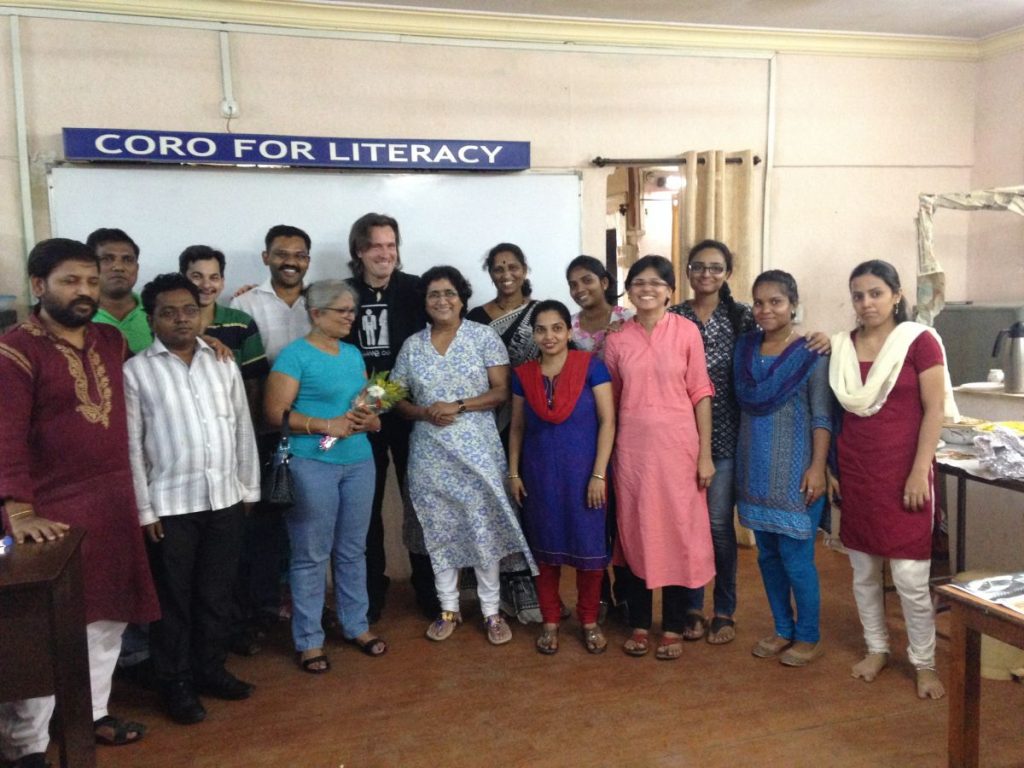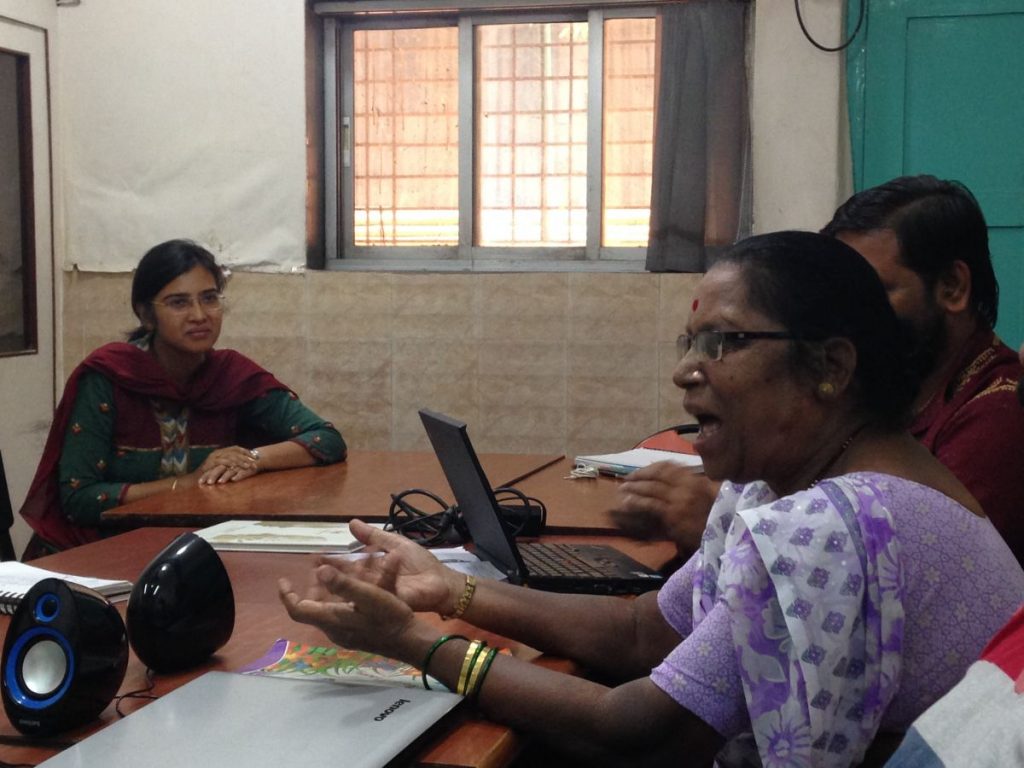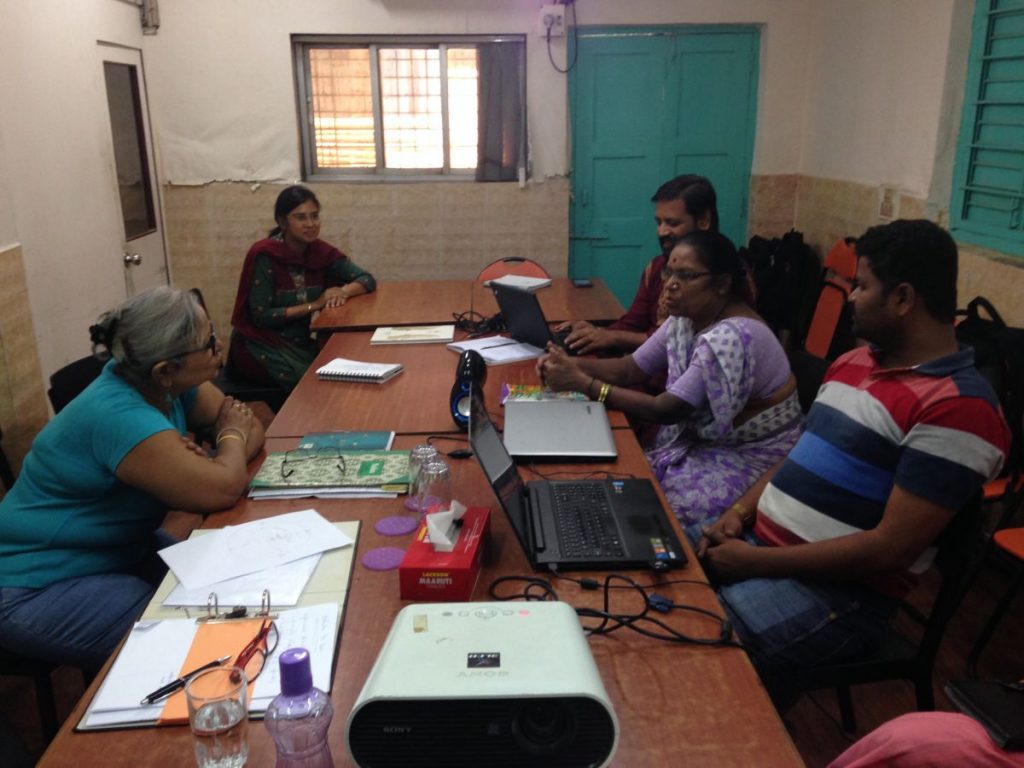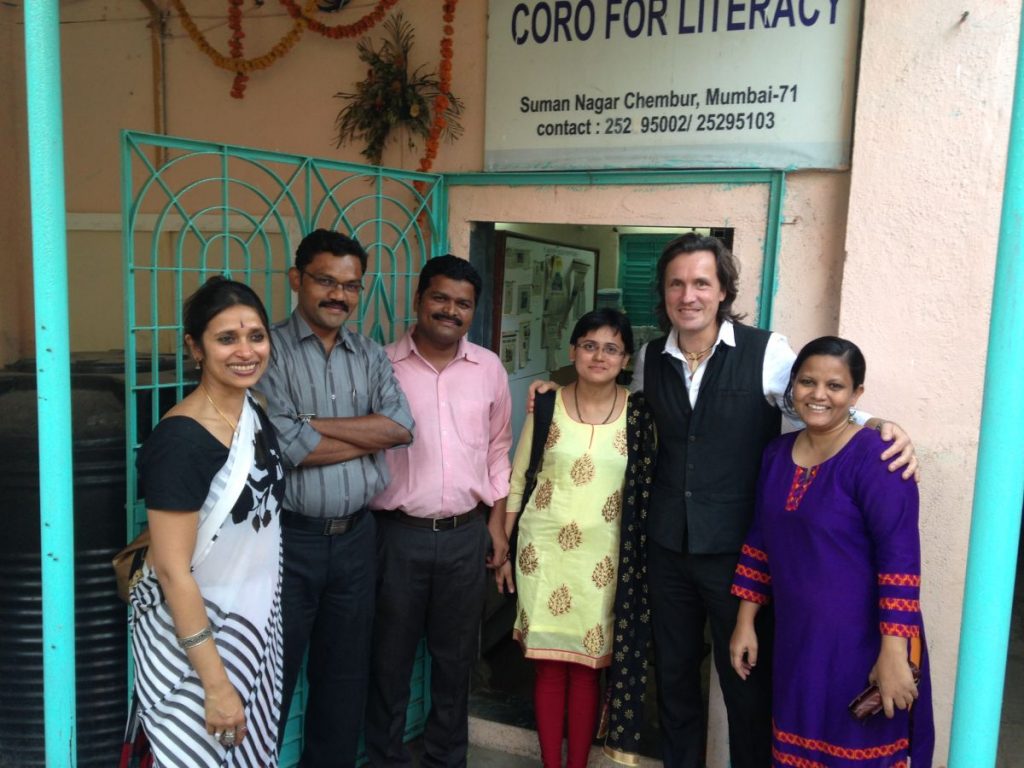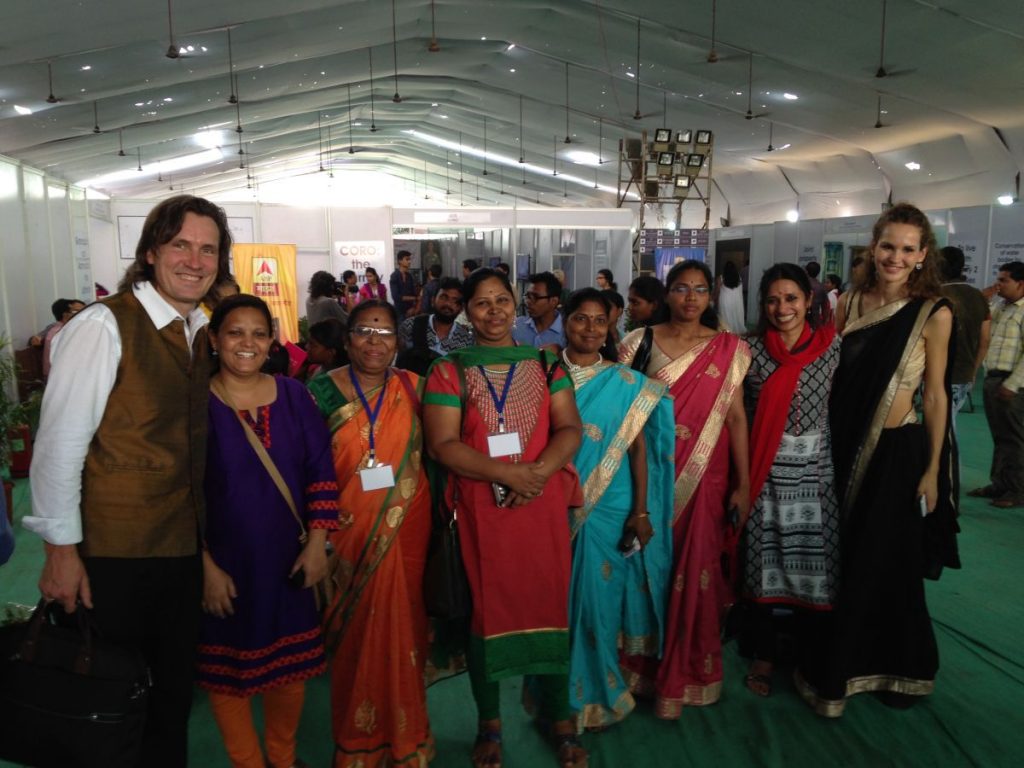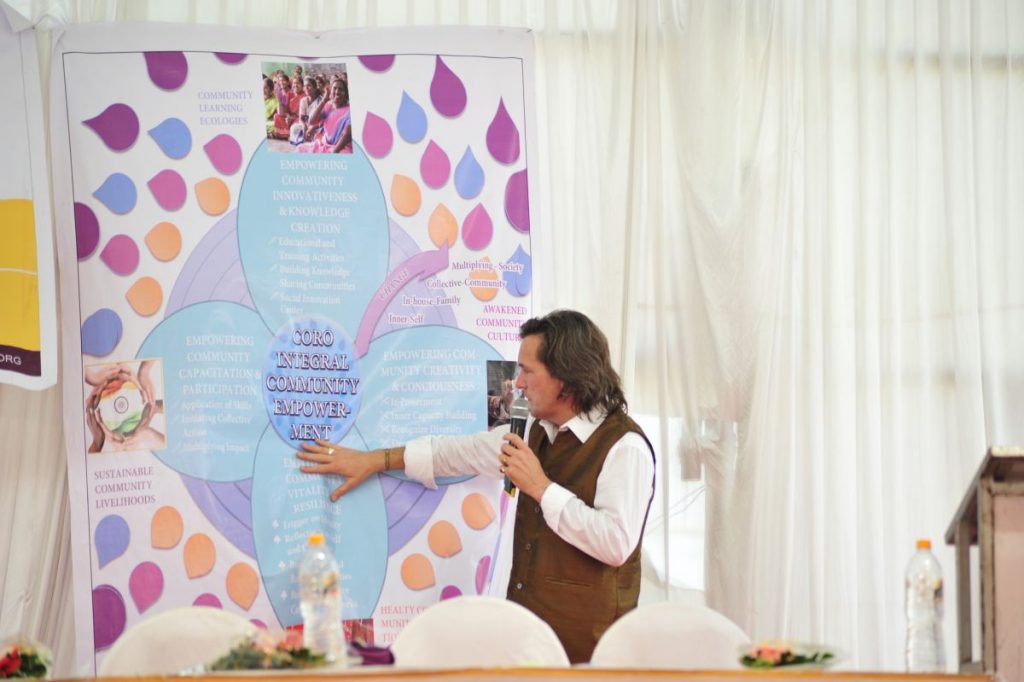CORO was formed with the aim of propagating adult literacy in the slums of Mumbai. Literacy was seen as a tool to mobilise marginalised people to solve their own issues.
Co-founded by Sujata Khandekar and colleagues, over the last 25 years it has evolved into a grassroots-owned organisation led, shaped and managed predominantly by Scheduled Caste and Muslim women and men, thereby also integrating the Muslim minorities. Coro works towards a society based on equality and justice. It does so by empowering leaders in the most marginalised communities to steer collective action for social change.
Coro’s key areas of focus are empowering women; defending the rights of the marginalized; holding bureaucracy to account; empowering young people; improving livelihoods.
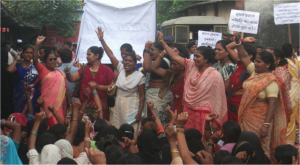
In the 25 years of its existence, CORO has grown into a prominent grassroots movement, with a reach into Mumbai and the surrounding state of Maharashtra. In the process, it has also become a focal point for a huge network of grassroots projects and initiatives. In fact, CORO today can be rather described as a “network of networks” and as a “development ecology”. In order to increase its social, economic, and also geographic reach, and with a view to strengthen its capacity to serve the changing needs in a highly complex and fast-moving society, CORO is now entering a new phase of its development during which its ability to stimulate collective knowledge creation processes and make them more explicit is the key to sustain and grow the organisation and its impact. Trans4m is actively supporting Coro in this new phase.
In 2015, Trans4m’s Junior Fellow Zarah Kronbach has spent about four months in India, actively working with CORO on “An Integral Approach to Collective Community Empowerment”. Building on the work of Zarah, together with a Coro Innovation Team, CORO is now envisioning the design and establishment of a Center for Grassroots Leadership, with the primary task of catalysing and leveraging such collective knowledge building and social innovation processes more effectively. While such a center would initially focus to serve marginalized communities in the state of Maharashtra, it should ultimately reach out to India as a whole.
Students from Trans4m’s Integral Development classes have also contributed to CORO via in-depth case work, the most recent being the development of an initial integral design for Coro’s Center for Grassroots Leadership.
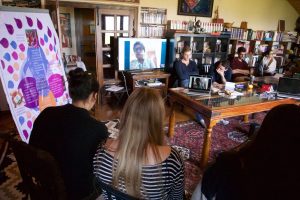
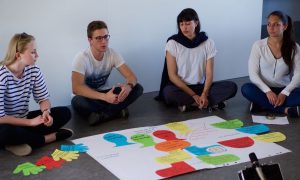
Coro is passionate about the integral approach. For Sujata Khandekar, one of the Co-Founders of Coro, “Integral” is the process that traverses inward-outward, builds bottom-up, is rooted into collective activism and co-creation; and thrives in and with the ecosystem that emerges as part of this process.
NOTE MARCH 2018: Collaborative Knowledge Creation Conference, with CORO, Tiss, and Trans4m in Mumbai
- Trans4m-Coro Workshop on Coro's new Center for Grassroots Leadership, Mumbai / June 2016
- One of Coro's veteran community activists, Mrs. Biju Bhosle, expressing her views on Grassroots Leadership (Trans4m Coro Workshop, June 2016)
- Coro's leadership team exploring its new Center for Grassroots Leadership with Trans4m, joined by filmmaker and social activist Arunaraje Patel (June 2016)
- Trans4m Visit at CORO 2015: with key members of Innovation Ecosystem
- With Coro Team Members and Trans4m Junior Fellow Zarah Kronbach at Coro Grassroots Festival
- India / Integral Community Development: At CORO Grassroots Festival: November 2015
